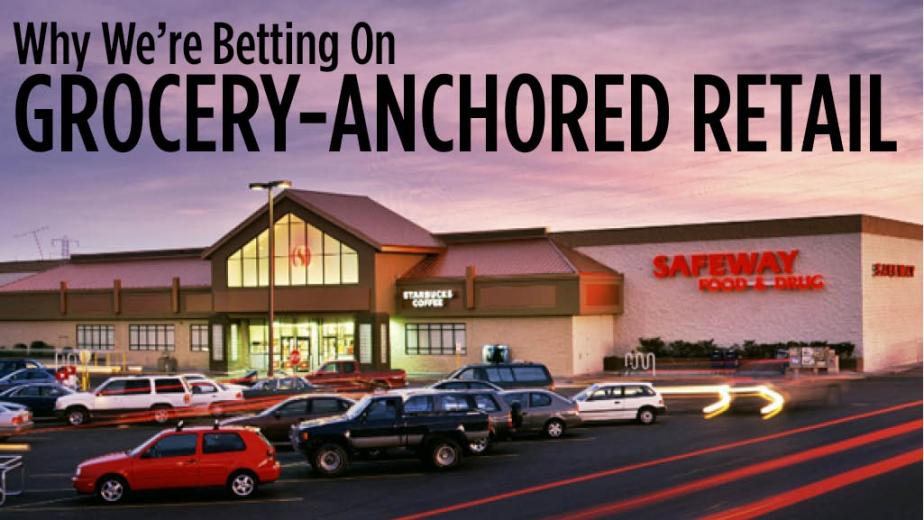1 7
1 7
Today’s commercial real estate investors have seemingly endless options about which asset class to invest in. As the market has gotten hotter and hotter, increasingly investors are going after more opportunistic deals, happy to consider new asset classes and less than ideal locations to yield better returns. But when the market comes down, as it inevitably will, they will have more to lose.
At Unison, we’re taking a different approach, sticking with the asset class we know to be successful, stable and low-risk: suburban grocery-anchored retail. Here are some of the reasons that we’re continuing to bet on grocery-anchored shopping centers this year:
According to a recent report from Cushman & Wakefield, at the close of the first quarter in 2015, shopping center vacancy stood at 8.0 percent, with vacancy levels even lower (below 5.0 percent) for premium shopping center space. Community, neighborhood and strip centers make up the majority (67.1 percent) of this inventory, with just fewer than 3.6 billion sq. ft. of product. As the levels of suburban housing development continue to rise, these properties will spur new demand for this type of retail hub.
These properties aren’t going anywhere—and now, at the top of the market, is the smart time to make this investment.
By their very nature, these mostly suburban grocery-anchored shopping centers are easily accessible for the communities they serve. Whether it’s a quick trip to the store to buy milk or stopping by the post office to drop off mail, neighborhood community centers make these necessary trips quick and painless.
Grocery-anchored shopping centers have consistently served the basic daily needs of the neighborhoods and communities that surround them, providing everything from food and dry cleaning to alcohol and health services. Because they’re composed of everyday necessities, many have even evolved into community meeting places where neighbors can physically come together during a time when virtual connection often dominates interpersonal interactions. We’re seeing this transition take place in industries from grocery stores to health and wellness, each spurred to become more experiential and embracing of innovative new uses.
Adapting to consumers’ changing needs has been critical to the success of grocery-anchored shopping centers. As retailers better understand what consumers want and how they’d like to be engaged with, they have been able to evolve their former in-store only strategy with much success. Omni-channel shoppers, who shop both online and in-person, spend up to 3.5 times more than single-channel shoppers, according to a recent study. In practice, this means that these customers are provided the flexibility to order online and pick up in-store, make returns in-store or even use digital resources to track a product’s availability in a physical store. For retailers, this is a big win, because as retail touch points increase, there are more opportunities to convert a sale. This has also led to a push for brick-and-mortar stores to differentiate themselves—in the physical space.
For many products, e-commerce might be trusted, but when it comes to food, the majority of people still want to pick their own produce and other food items. As a recent study from Bain can attest, while e-commerce penetration varies across different categories, groceries fall under the lowest internet penetration rate of any category. This is only likely to increase with the push for local, fresh food. Many retailers are starting to incorporate digital technology to display what’s available in-store, which will help consumers find the products they’re looking for more efficiently.
Grocery-anchored shopping centers will continue to be a reliable resource for communities, and in turn, a reliable investment. At a time when prices are high and there are many investors chasing the same properties, it’s time to move away from the herd mentality toward quality real estate. For commercial real estate investors, this means sticking with stable, low-risk investments in grocery-anchored retail which will result in reliable, steady returns.
Karim Fadel is the founder and principal of Unison Realty Partners, a Boston-based privately held retail real estate investment management firm focused on acquiring, repositioning, redeveloping and/or improving neighborhood and community shopping centers anchored by national or regional grocers.

